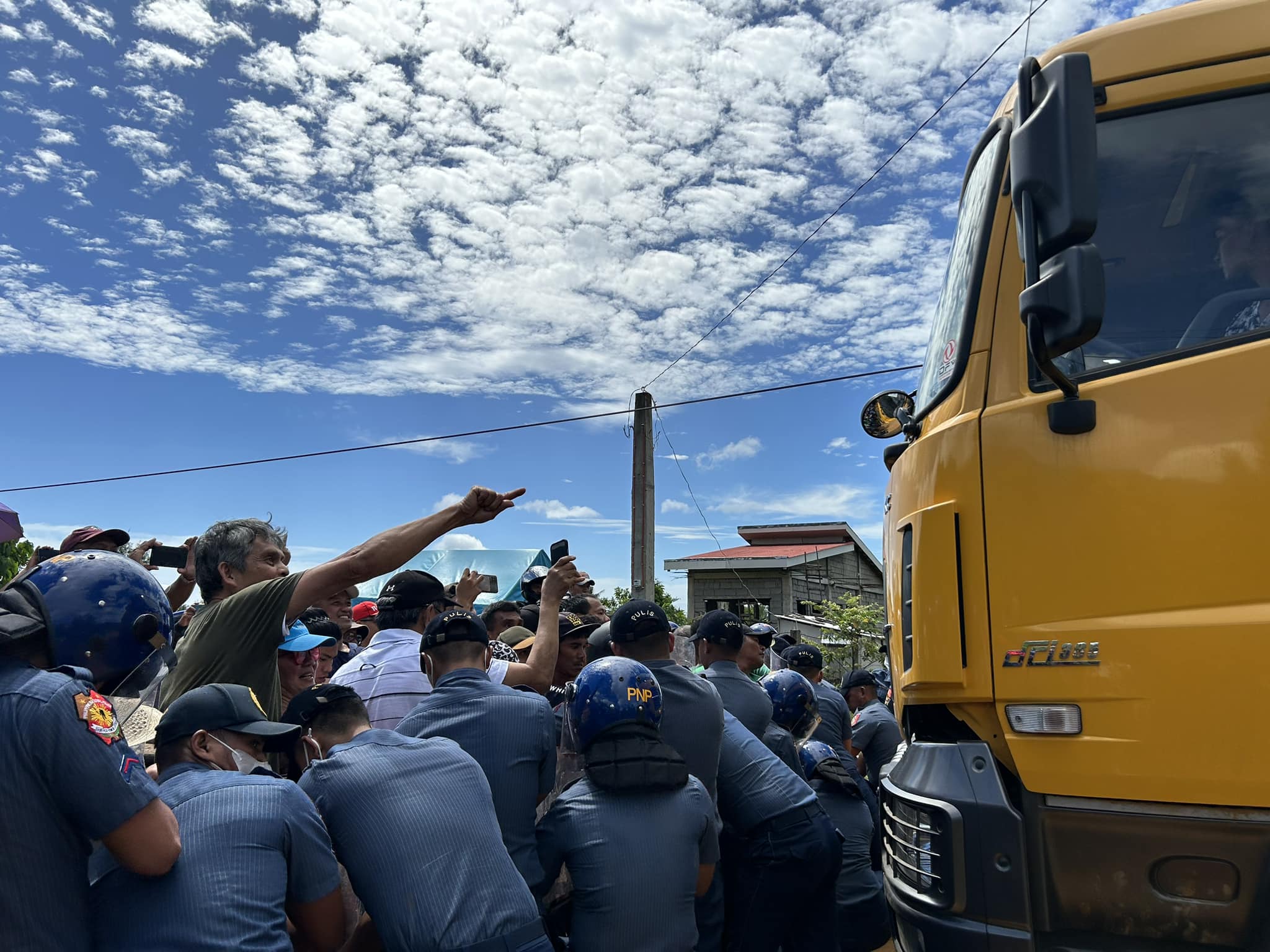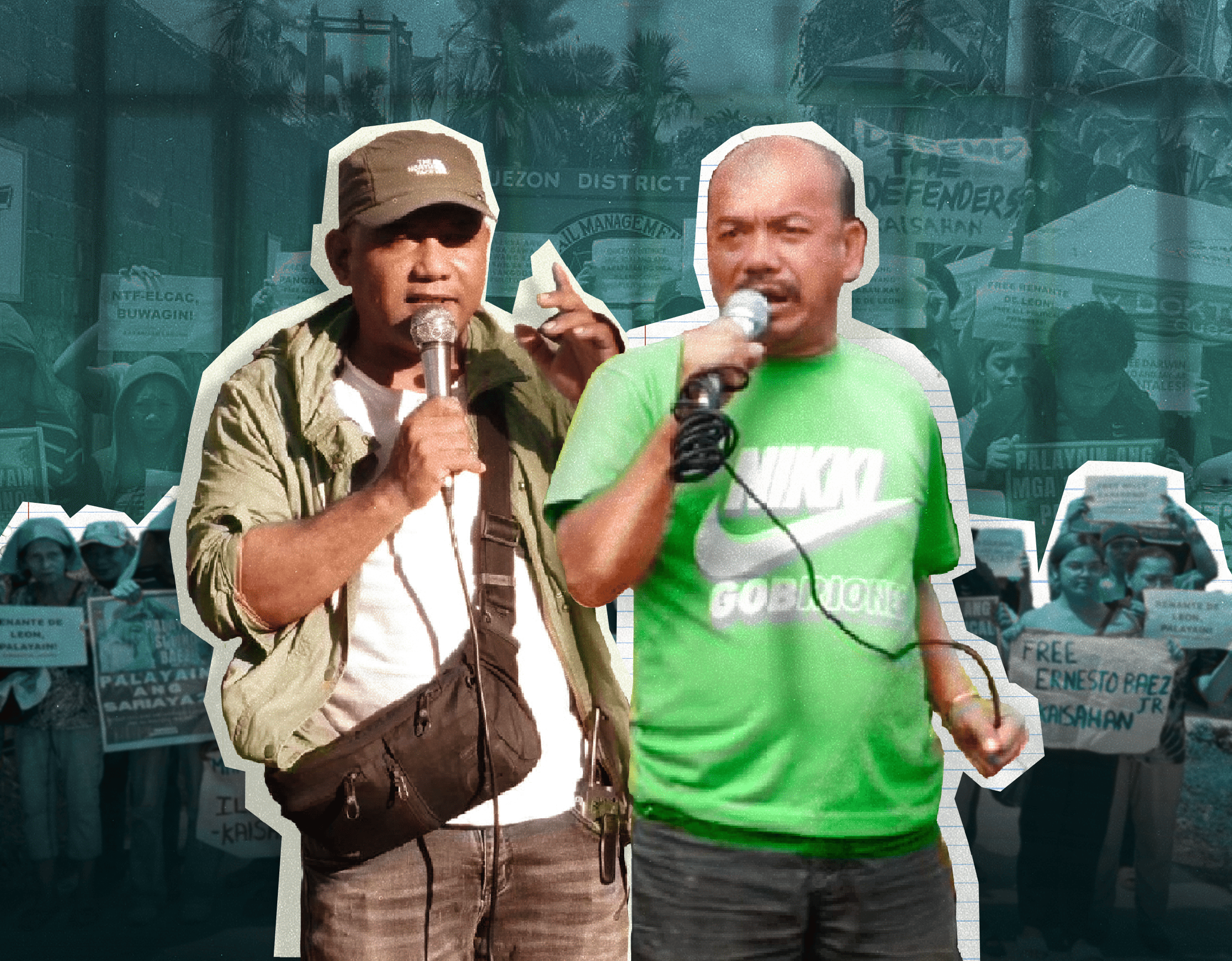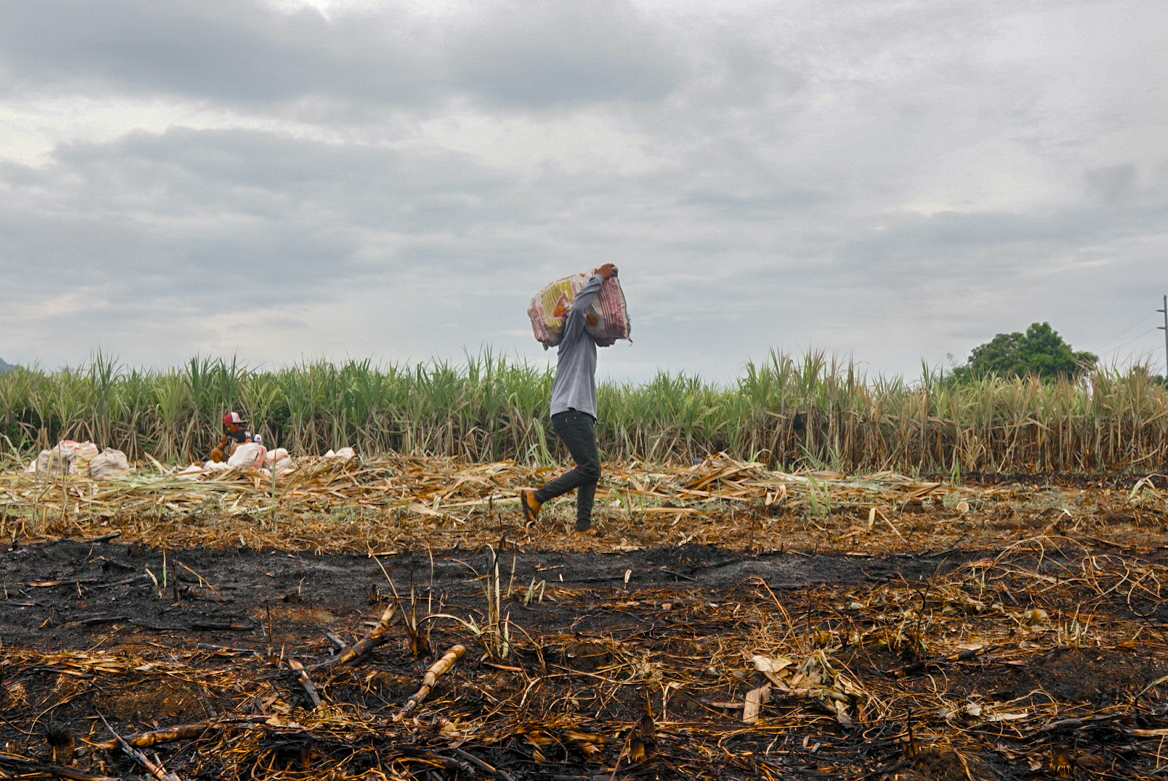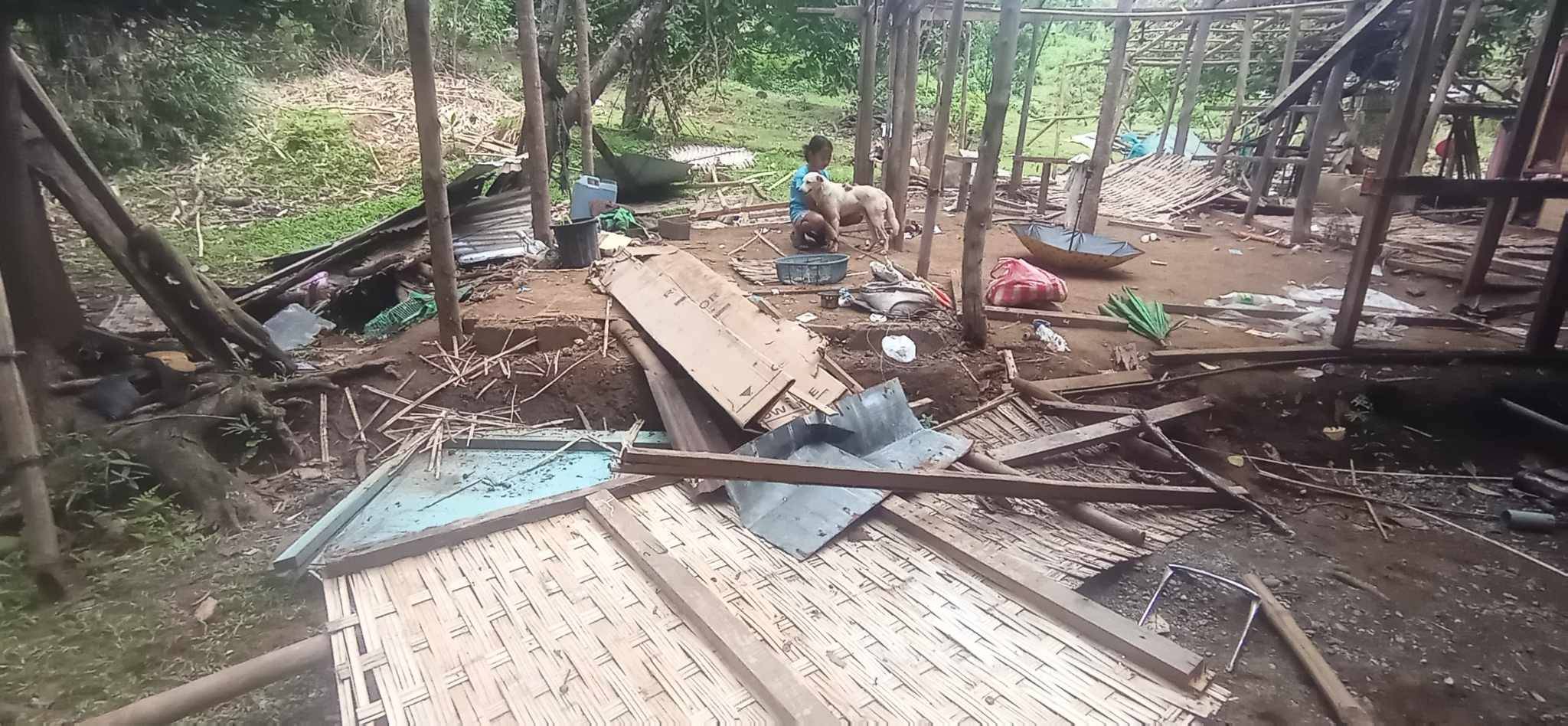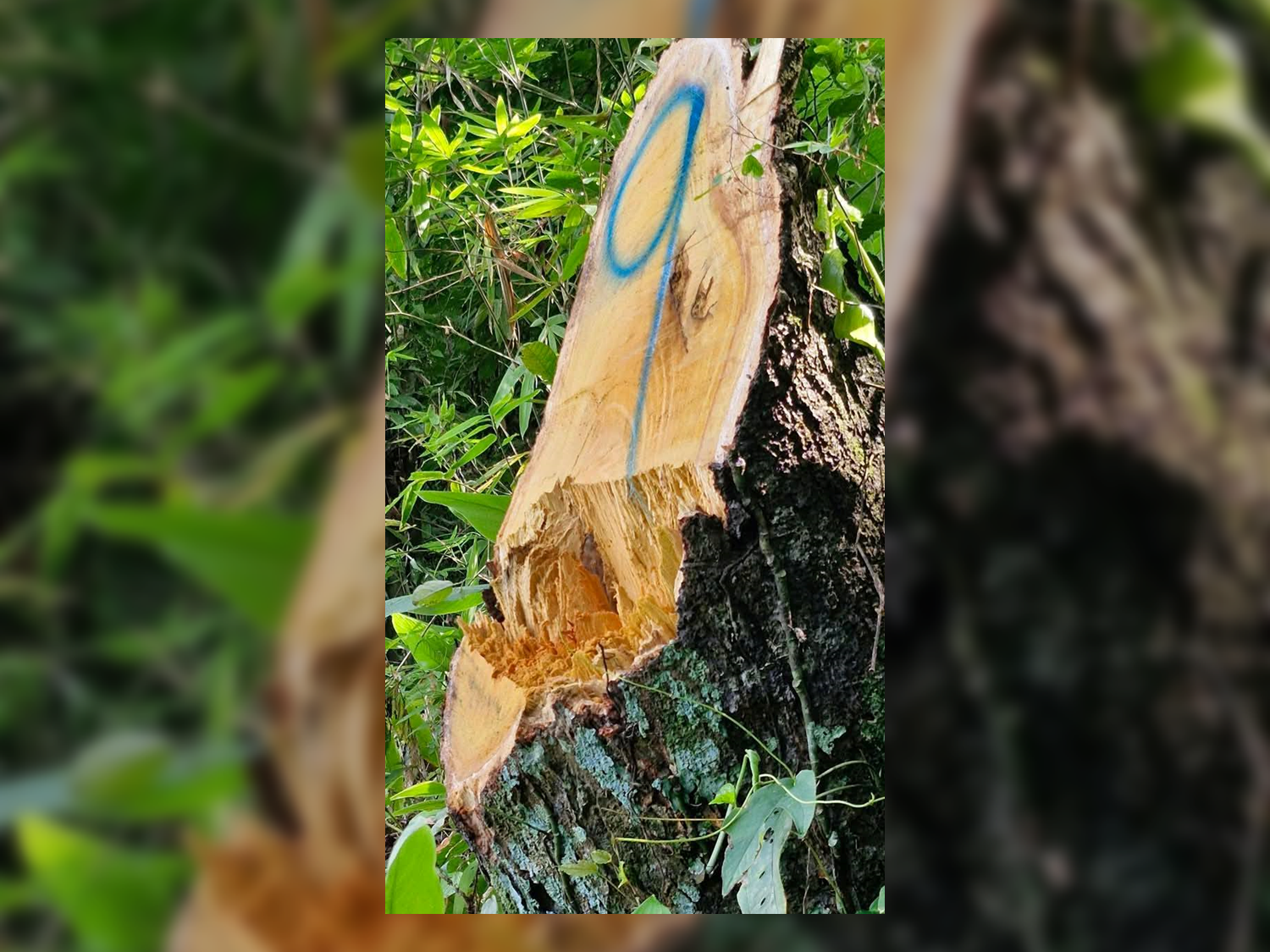Altai Philippine Mining Corporation (APMC) continued their nickel extraction from Sibuyan Island, Romblon without the necessary permits, which environmental groups say risked Sibuyanon’s well-being and the island’s ecological balance.
To firmly halt the transportation of nickel ore in San Fernando village, the residents formed a human barricade to block APMC’s trucks but they were forcibly dispersed by local authorities on February 3. A video of the violent dispersal went viral across social media.
The unauthorized tree-cutting resulted in damages to the habitats of the local animal species, triggering protests. Two people were reportedly left injured. However, residents say that several other individuals sustained injuries during the incident.
“A lot of the natural heritage, kung saan dependent yung mga taga-Sibuyan, when it comes to their farming and even yung pangingingisda nila, [are] all at risk if mining continues,” said John Bonifacio, national coordinator of Kalikasan People’s Network for the Environment (PNE).
The incident began when APMC started operations based on the exploration provision of their Mineral Production Sharing Agreement (MPSA) and began nickel ore extraction and transportation despite their failure to secure the necessary permits.
APMC’s contract requires that other permits, including those from the local government, environmental clearance, and permit to construct a port, are acquired before exploration and extraction for sampling.
The MPSA contract was initiated between APMC and the government which authorized the corporation to conduct mining operations over a given land area in exchange for the government receiving partial allocation from the profit of the project.
Initially, APMC was granted an exploration permit in 2011 but was later ordered to halt operations by the Mines and Geosciences Bureau due to lack of “social acceptability.” The order was lifted in 2021 during the Duterte administration and APMC promptly renewed the permit in July 2022, explained Rodne Galicha, chairperson of Bayay Sibuyanon, a group that advocates for the mining operations removal on the island.
The exploration permit was authorized under the Philippine Mining Act of 1995. But despite the measures required by the mining law, APMC was able to operate without the necessary permits, leaving Sibuyan Island at the losing end.
APMC was unable to present the complete documents from the barangay and the Philippine Port Authority (PPA) to construct a private port as well as their environmental compliance certificate (ECC), effectively breaching the conditions stipulated in their MPSA.
“It doesn't mean that if they have the mineral production share agreement and exploration permit, they can [already] do other things. The MPSA says they need to acquire permits that are necessary and desirable and failure to do it may be grounds for the cancellation of their mineral production share,” said Galicha.
In response, the Department of Environment and Natural Resources (DENR) suspended APMCs transportation permit and instructed the Provincial Environment and Natural Resources Office of Romblon to assess and file charges against the company for illegal tree-cutting and damage to marine resources.
The delayed government response in addressing APMC’s operations has impacted nearby water sources and habitats of endangered species.
“On a national level, it took a while from the start of the people’s barricade until naglabas ang DENR ng statement on the issue. It took a lot of pressure from civil society for that to happen and the same thing on a regional level,” said Bonifacio.
APMC has withdrawn and temporarily suspended operations following the order issued by DENR. However, their equipment remains within the area and has not yet been taken down, leaving the possibility of their return.
Environmental advocates call on the DENR to scrap the existing MPSA and enact House Bill 259, also known as the People’s Mining Bill, which aims to reorient the mining industry to prioritize local development of extracted minerals and resources over foreign multinational conglomerates.
The bill proposes nationalizing the mining industry and achieving self-sufficiency through government-sponsored national industrialization, by localizing the workforce and equipment while prioritizing community development, environmental protection, and indigenous rights.
A 25-year mining moratorium or ban has also been proposed to suspend mining operations and enable the protection of environmental resources as suggested by Galicha. However, Executive Order 130, issued by former President Rodrigo Duterte to lift the ban on open-pit mining, considered the most destructive kind of mining, is an indication of the government’s disapproval of such a ban.
“Kailangan i-nationalize yung mining industry kasi hindi talaga sasapat na we just cater to the whims of international companies who come in and extract so much. Kailangan ma-reorient yung production para the development in livelihood stays here,” Bonfacio said. ●
